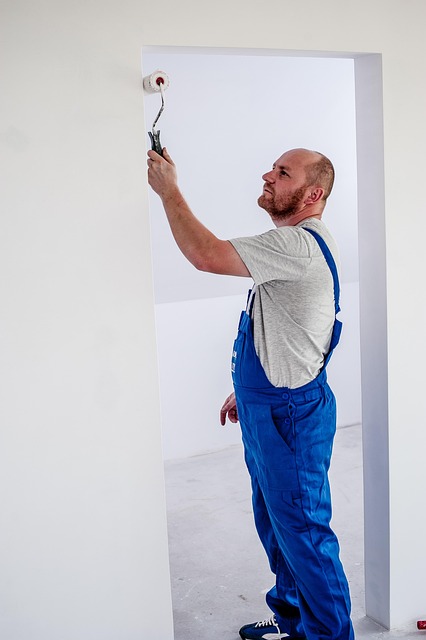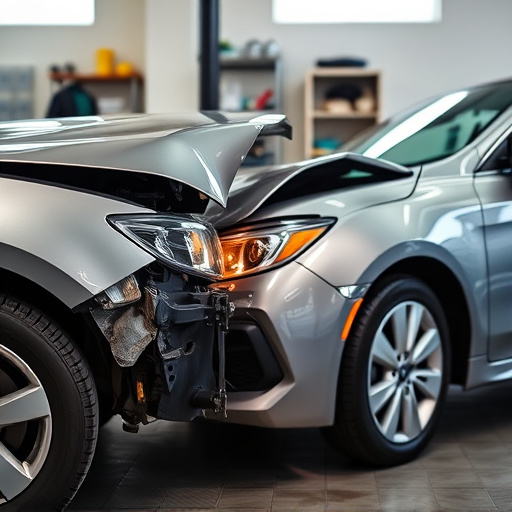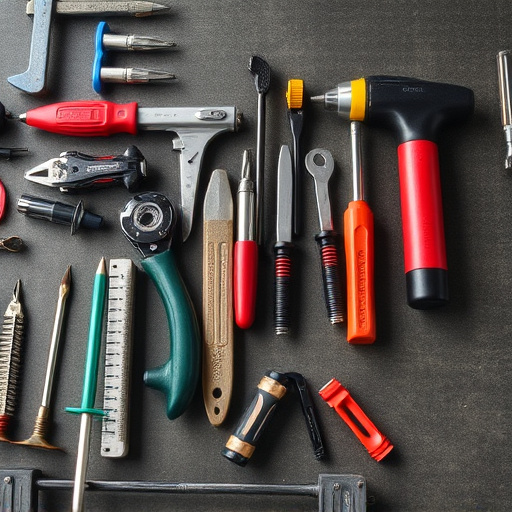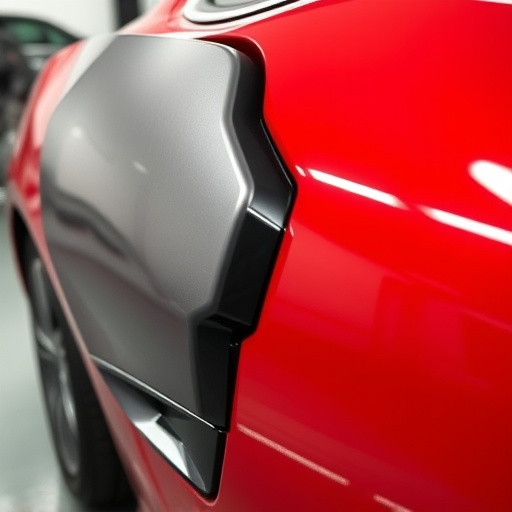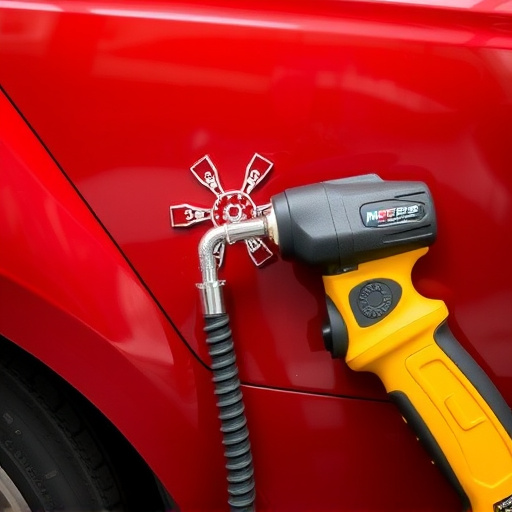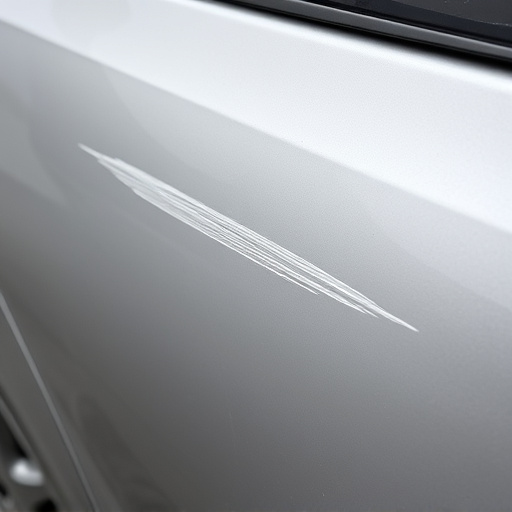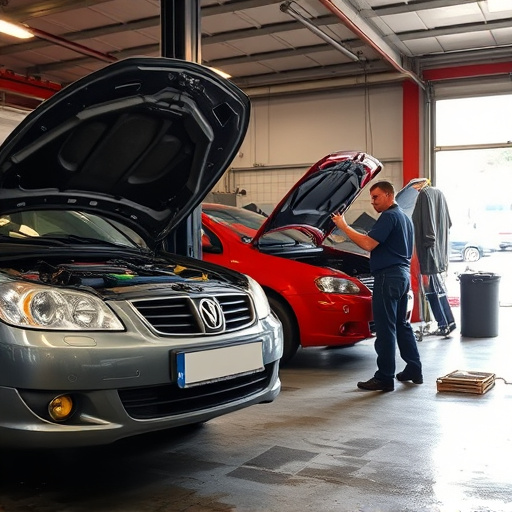Repair quality measurements are essential for insurance claim approvals, ensuring accurate assessments and resolutions. They go beyond visual inspections, using advanced tools to evaluate structural integrity, cosmetic repairs, and restoration techniques. Meticulous documentation at each stage promotes informed decision-making by insurers, accurately values claims, and enhances customer satisfaction by fostering trust in the automotive repair industry.
In the dynamic landscape of insurance, understanding the role of repair quality measurements is paramount. These metrics play a pivotal role in navigating complex claims approval processes, ensuring fairness and accuracy. This article delves into the intricacies of repair quality measurements, exploring their impact on insurance decisions and the tools used to evaluate them. By scrutinizing these measurements, insurers can make informed choices, fostering trust and efficiency in claims handling.
- Understanding Repair Quality Measurements in Insurance
- Impact of Repairs on Claims Approval Decisions
- Ensuring Accuracy: Tools and Techniques for Evaluation
Understanding Repair Quality Measurements in Insurance

Repair quality measurements play a pivotal role in insurance approvals, ensuring that claims for vehicle damage, be it through accidents or natural disasters, are accurately assessed and resolved. These measurements go beyond simple visual inspections to include detailed assessments of structural integrity, cosmetic repairs, and restoration efforts. By quantifying repair work using advanced tools and techniques, insurance providers can make informed decisions about the extent of coverage and the necessary reimbursement amounts for clients seeking compensation for their automotive repair services or car restoration projects.
The process involves meticulous documentation and evaluation of each repair stage in vehicle dent repair, among other types of damage. This includes measuring dimensions, identifying material discrepancies, and assessing alignment accuracy. Such comprehensive quality measurements not only help in accurately valuing claims but also encourage a culture of excellence within the automotive repair industry. They ensure that clients receive high-quality car restoration work, fostering trust in the insurance process and ultimately enhancing customer satisfaction.
Impact of Repairs on Claims Approval Decisions

The quality of repairs plays a pivotal role in insurance claims approval decisions, significantly influencing the overall process and outcome for both insurers and claimants. When a vehicle undergoes car repair shop procedures following a collision or damage, meticulous attention to detail during the repair process becomes paramount. Insurers rely on repair quality measurements to assess the accuracy, proficiency, and integrity of the work performed, ensuring that the restored vehicle meets pre-incident standards.
In the realm of vehicle collision repair, scratch repair techniques and overall craftsmanship are scrutinized through these measurements. They help in determining whether repairs meet industry benchmarks, thereby affecting the approval status of claims. High-quality repairs not only expedite the claims process but also foster trust between insurers and policyholders. Conversely, inadequate or subpar repairs can lead to delays, rejections, or disputes, underscoring the importance of precise and meticulous work by reputable car repair shops.
Ensuring Accuracy: Tools and Techniques for Evaluation

Ensuring accuracy in repair quality measurements is paramount for insurance approvals. The use of advanced tools and techniques plays a significant role in this process, enabling assessors to make informed decisions based on objective data. Modern technology like 3D measuring systems, thermal imaging cameras, and specialized software applications offer precise and detailed assessments of damage. These tools capture intricate dimensions, detect hidden issues often invisible to the naked eye, and provide comprehensive reports that stand up to scrutiny.
For instance, car bodywork services utilize paint analysis equipment to verify the authenticity of repairs, ensuring that only authorized procedures are carried out. Body shop services employing these advanced techniques can demonstrate their commitment to quality control, fostering trust with insurance companies. Automotive body shops that adopt such practices not only streamline the approval process but also enhance customer satisfaction by delivering high-quality, assured repairs.
Repair quality measurements play a pivotal role in insurance approvals, ensuring that claims are accurately assessed and processed. By implementing robust evaluation tools and techniques, insurers can make informed decisions, balancing cost-effectiveness with customer satisfaction. These metrics not only streamline the claims process but also foster trust between insured individuals and their providers, ultimately enhancing the overall insurance experience.



